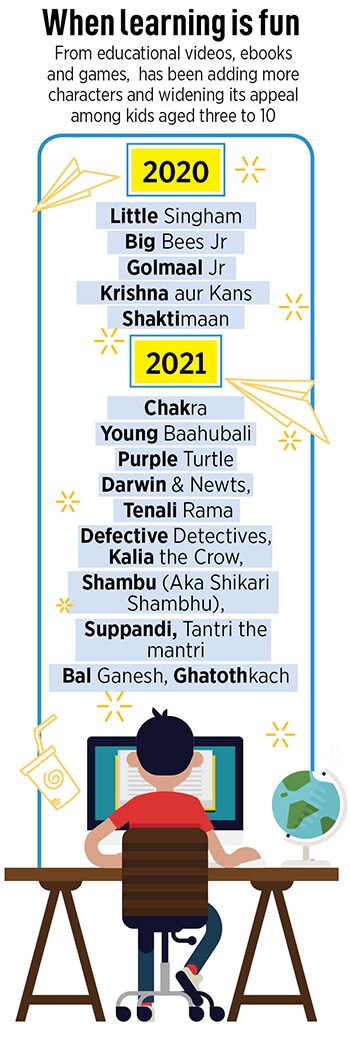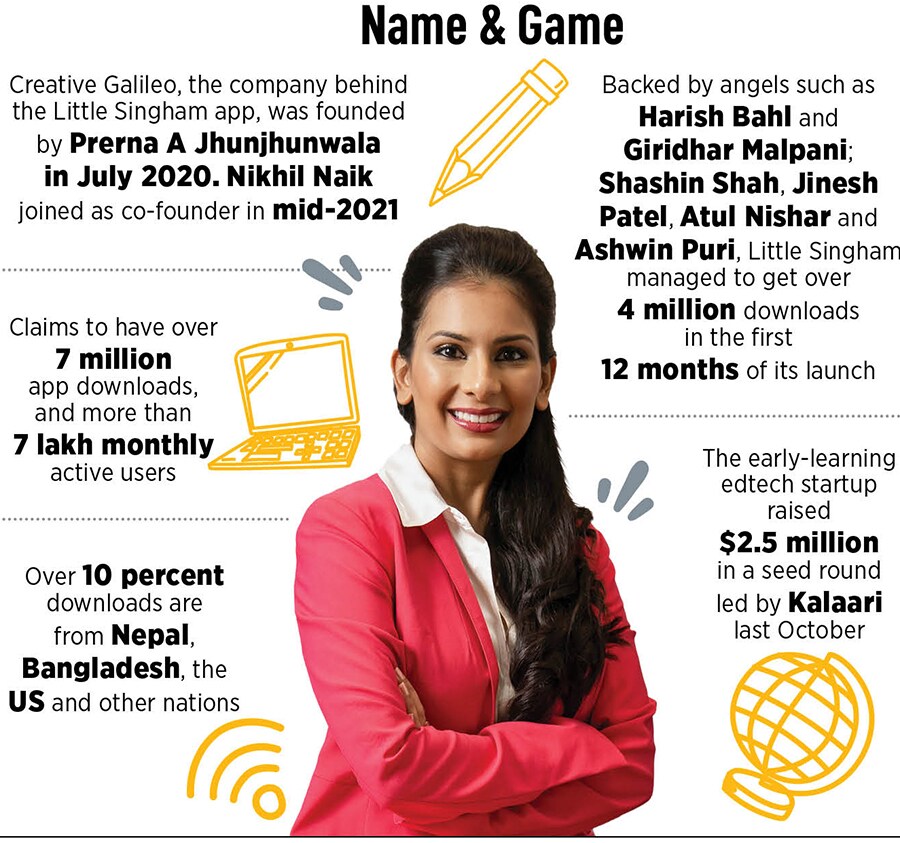
Can early-learning startup Creative Galileo make money?
Prerna Jhunjhunwala made Creative Galileo one of the fastest growing early-learning apps in India by using a bunch of well-known desi characters. Can she now make money out of it?
 Prerna Jhunjhunwala, Founder Creative Galileo
Image: Juliana Tan
Prerna Jhunjhunwala, Founder Creative Galileo
Image: Juliana Tan
It was nothing less than foolish courage. A young NYU grad from Kolkata gets married in 2012, moves to Singapore, and opens her first preschool—Little Paddington—in July 2015. “It was indeed foolish courage,” recalls Prerna Jhunjhunwala, alluding to the move to open her school next to one of the big legacy preschool brands. “I mean who does it? You are taking on the Goliaths of preschools who have been in business since decades,” she says, adding that her childhood dream was to open schools. The first few years of her upbringing in Kolkata, where she used to teach kids of workers employed in her father’s factories, made her realise the need to democratise education and make it accessible. Access to education was a big privilege was the first big learning. “The second learning was that education could be a big equaliser,” she says.
Back in Singapore, it was not only the venue to fight a pitched battle that looked baffling, the weapon selected too was perplexing. Little Paddington started teaching in English and Mandarin. Now, for somebody not exposed to Chinese culture and language, teaching in an alien medium meant two things. First, putting in extra hours to learn the language. Second, Jhunjhunwala also had to ensure that lack of experience in Mandarin shouldn’t make her look like an upstart.
She was, however, determined to make a mark. The young woman used all her savings, took some money from her husband and started operations. In five years, she scaled to five schools, employed over 120 teachers, clocked 40 percent Ebitda margin and sold Little Paddington to Singapore-based private equity firm Affirma Capital for $35 million (around ₹180 crore).
Five years later, in July 2020, Jhunjhunwala was about to do something which was again billed as ‘foolish courage’. She now wanted to replicate her brick-and-mortar success in an online world. There was a small problem, though. The battleground this time was India. Pandemic, lockdowns and learning-from-home already provided a fertile ground for mushrooming, and flourishing, of edtech players in the country. While there were biggies catering to K12 and test prep, a sea of smaller players were also in the fray wooing kids in preschools.
Also read: It's wartime but it's not a challenge: Byju Raveendran on the future of online learning




 What was missing, though, was a serious kid’s play. There was no big player in early learning. The one big one in the fray—Byju’s—had collaborated with Disney and was using their characters to reach out to kids. The move, she reckons, didn’t have any emotional connect because of the alien nature of the characters. “There were no Indian characters,” she says. Jhunjhunwala started Creative Galileo, rolled out her proof of concept in July, and launched the Little Singham app on the Play Store.
What was missing, though, was a serious kid’s play. There was no big player in early learning. The one big one in the fray—Byju’s—had collaborated with Disney and was using their characters to reach out to kids. The move, she reckons, didn’t have any emotional connect because of the alien nature of the characters. “There were no Indian characters,” she says. Jhunjhunwala started Creative Galileo, rolled out her proof of concept in July, and launched the Little Singham app on the Play Store. 




